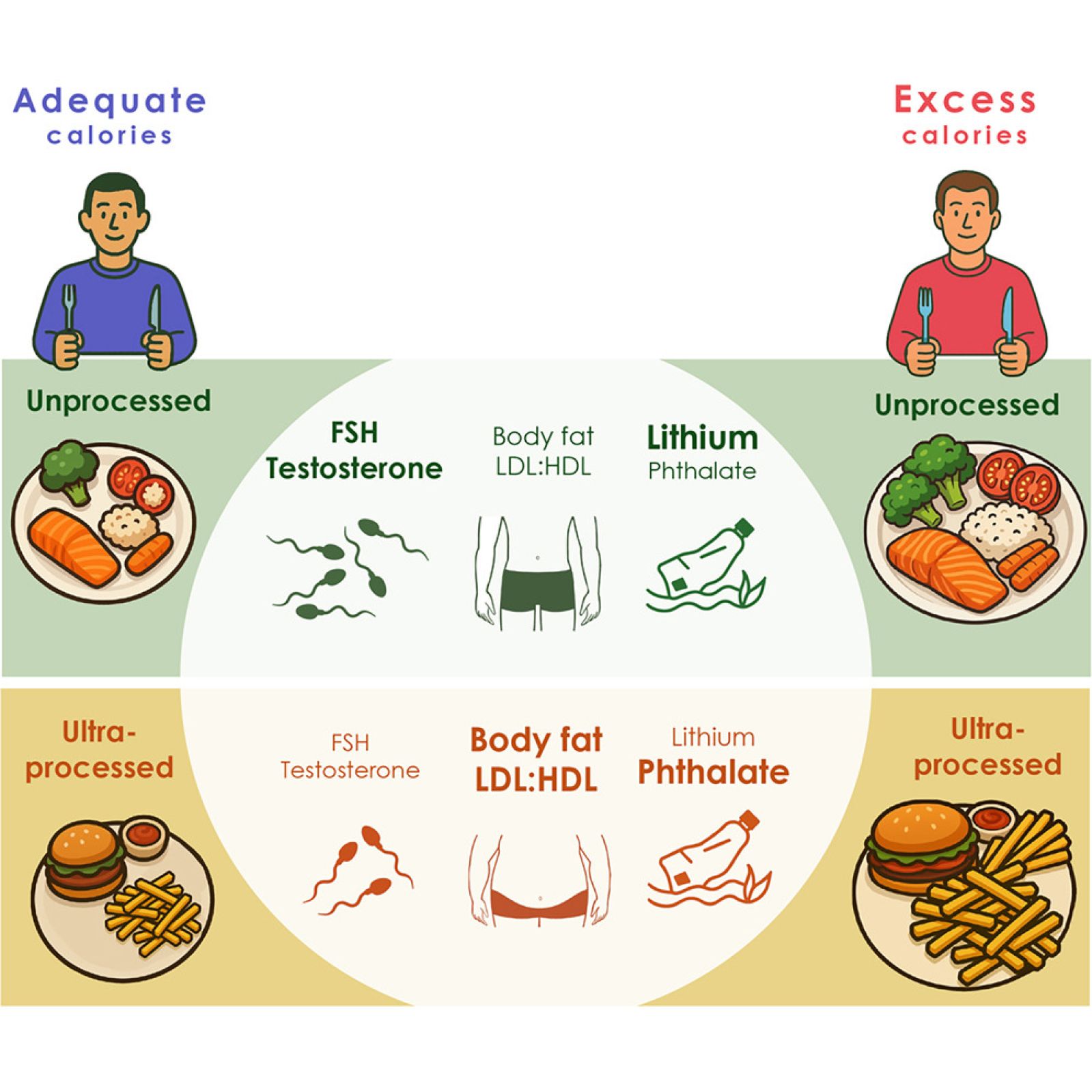⚠️ Here are the real dangers of ultra-processed products, and it's not due to calories!
Published by Cédric,
Article author: Cédric DEPOND
Source: Cell Metabolism
Other Languages: FR, DE, ES, PT
Article author: Cédric DEPOND
Source: Cell Metabolism
Other Languages: FR, DE, ES, PT
Follow us on Google News (click on ☆)
A team of researchers has indeed just shown that in just three weeks, these products could disrupt the health of those who consume them, regardless of the quantity.

Illustration image Pexels
For several years, these ultra-processed foods have been singled out for their link to obesity and metabolic diseases. But these observations were mainly based on epidemiological surveys, which indicate associations without establishing real causality. To go further, an international team therefore conducted a controlled clinical trial to understand whether the harmful effects of these products are related to the dietary excesses they provoke, or to the very nature of these products.
An unprecedented experimental protocol
The study involved 43 men, aged 20 to 35 and divided into 2 groups. The researchers were thus able to compare the effects of a diet rich in ultra-processed foods versus a diet based on minimally processed foods. Participants received either a diet tailored to their daily needs, or an energy surplus of 500 calories per day.
This distinction made it possible to observe the effects of ultra-processed foods without confusing the influence of calories with that of industrial processing. After three weeks, the volunteers had a three-month break period, and then switched diets.
The measurements taken included weight, fat mass, blood pressure, hormonal parameters and sperm quality, providing a comprehensive view of metabolic and reproductive health.
Visible alterations in just 3 weeks
The results surprised researchers by their speed and magnitude. Men subjected to a diet rich in ultra-processed foods gained an average of 1.5 kg (3.3 lbs), even without caloric excess.

The ratio between LDL and HDL cholesterol increased, strengthening cardiovascular risk signals. A decrease in essential hormones, such as FSH or GDF-15, was also observed, with direct implications for fertility and energy regulation.
Finally, sperm quality was deteriorated, marked by a decrease in the number of motile sperm. For reference, these numerous (and rapid!) effects were not only related to calories, but indeed to the characteristics of ultra-processed foods.
The trail of industrial pollutants
Researchers observed an increase in blood and seminal levels of phthalates, plasticizers known to disrupt the endocrine system. This presence confirms the idea of contamination during processing procedures and through packaging.
Reduced levels of lithium, a trace element that plays a role in mood regulation, were also observed. These disturbances suggest a chemical dimension specific to ultra-processed foods, distinct from their simple nutritional composition.
According to the team, the accumulation of additives and the multiplication of manufacturing steps mechanically increase the risk of introducing these undesirable substances into the body.